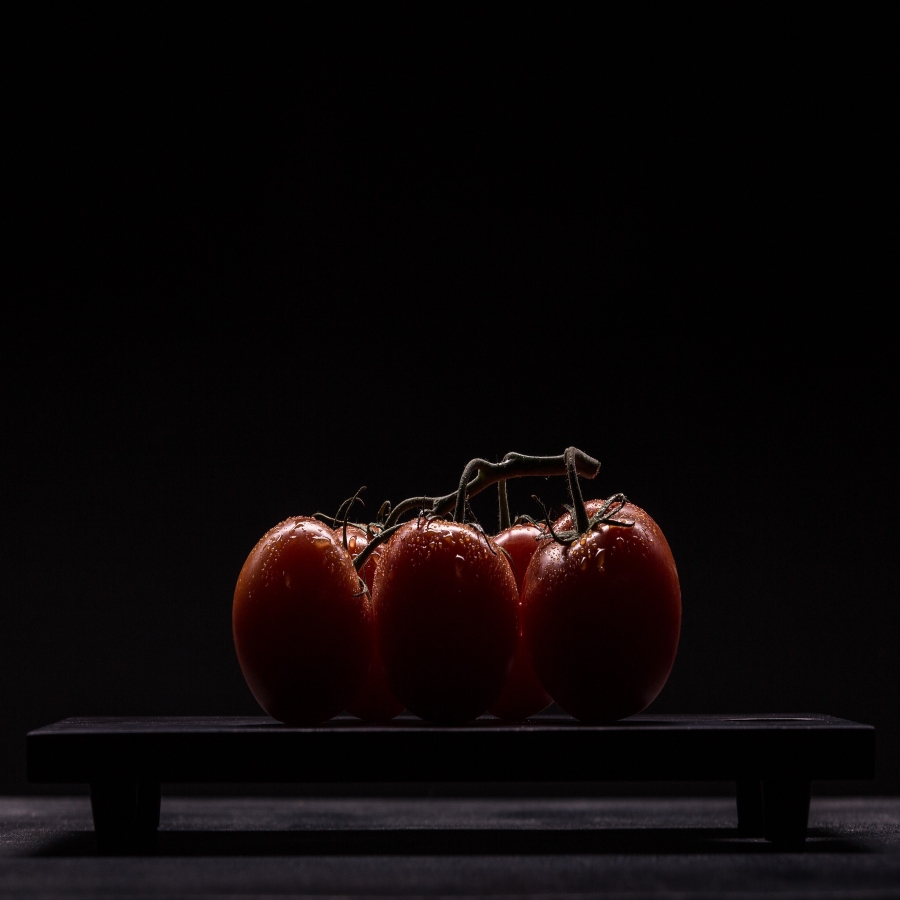1/10
Grandma Kim had a rose-petal mouth. See the ballooned lips, half-inch creases trapping her mouth at each end. Such shapes are difficult to translate in their three-dimensional splendor on paper. She smiles, but a printed smile is not a living smile. I would like to have seen her grin for myself, but then again, art is the playground for reanimating the dead.
2/10
Grandma Kim curled her hair, her pretty black hair, our mother says, showing us the formless crimps of her own broken and burned hair. What a mistake. Our grandma’s hair could be like ivy when left to its good nature: voracious. Here she has pinned it down, her bangs the only moving part, and they, too, show little of her unmuted self.
3/10
This print is of my grandmother, whom I never knew, and so it is of my mother and my sister and myself, too. You cannot see her large front teeth or the slight bowing of her calves or the delicate arc of her nose, but I tell you they are there, and in my mother and my sister and me, too. Her body divided into my mother divided into my sister and me.
4/10
Screen printing demands that you separate the world into discrete layers, but so too does it force you to see the glory made in overlapping them. Blue ink overlays gold and soars into a fertile green so that my grandmother’s garden pops, as it must have then, so much care given to the nurturing of things. See that birth. Note the flush of her tomato vines. Observe the hard lines that separate my grandmother’s hair, her body, from the background. No such lines exist in this world.
5/10
Each layer: run a test, note the placement with tape, pull fast and with strength and without breathing. Too slow, this layer, the gold of my grandma’s skin, which also blends with the plush blue of my grandma’s sky to create the green foliage. The paper has stuck to the screen and now my grandma’s unblemished skin and her garden are pocked and bubbled, the ink left reaching toward you. This, too, is natural.
6/10
Places can be haunted, we are told, but people must be haunted, too. If ghosts are souls turned vaporous and their homes confined spaces, then surely they can occupy a body? My mother always spoke of hauntings in her adulthood, before I or my sister came. Of a crushing feeling over her legs as she slept. Of sounds and voices that had no physical birth. She always believed her apartments to be haunted. She never considered that it was her bones, her blood that sabotaged her. Her hauntings stopped only because my grandmother channeled herself into me before birth. See the doubling of the linework, impossible without running the ink twice, and I tell you, you see, in those twinned grandmothers, her ghost making herself known. She deserves to be known.
7/10
Grandma Kim wore an apron even when she walked my mother and her sisters to school. Even when she went to the movies. The only time she ever untied its strings, our mother says, is when she would go to church with my mother and her sisters or when she would lay with her husband, who neither attended church nor went to the movies, so that he only ever saw her hips free when they made love. Note the fraying here, the delicate wash from a clean cream to the gritty brown marking years of use. We call this a rainbow pull, the melding of two colors in one layer. Some rainbows are not vibrant. Some rainbows are dishwater.
8/10
See the fumbling of the sky, the ink that just kissed the surface of the paper, leaving so much desire in its wake. My mother says that our grandmother was a perfectionist, every garment sewn in rigid lines. No errant threads. You might call me a bad grandson for presenting the unruly and off-kilter versions of this print, but let me remind you that to honor your ancestors you must build on their triumphs. A seamless garment. A seams-bared serigraph.
9/10
You might say this was not the assignment. You might say that you asked for ten matching prints, and I tell you that these are the same. Identical in their sloppiness, their mishaps. No more perfect symmetry exists than in the misguided, the malformed, the tainted.
10/10
Grandma Kim was born in Seoul and died in Kansas, not even seventy, not even a grandmother yet. Riddled, my mother says. She was riddled with tumors. A hard life takes its toll in hidden ways and yet, my grandmother kept going, even in death, to know my mother, to know me. She spent her years escaping to Tokyo, escaping to my grandfather’s barracks, escaping to his American home with its American layers, so opaque, so unreadable. See her spirit in these eyes. See her reading you and everyone else, finally, with the clarity of the unbounded. With the eyes of the immortal.

